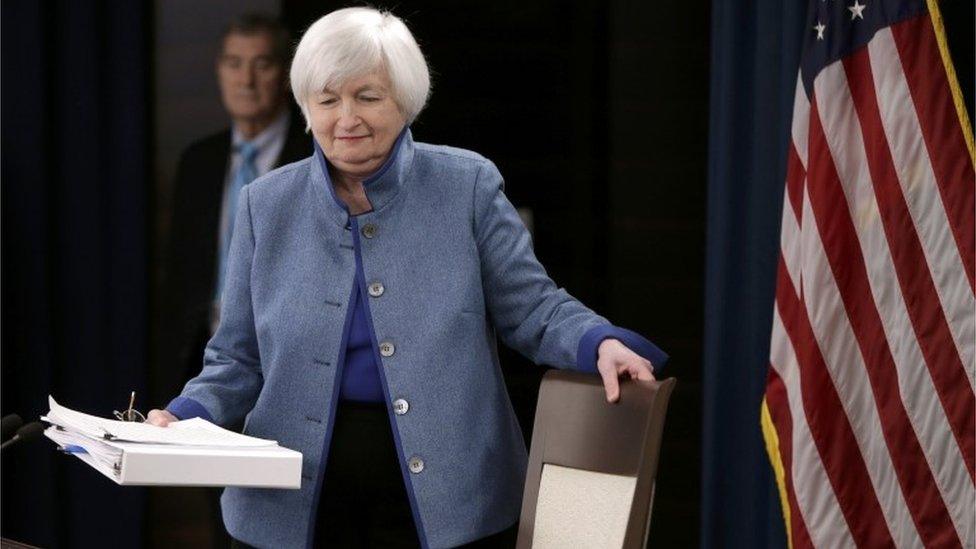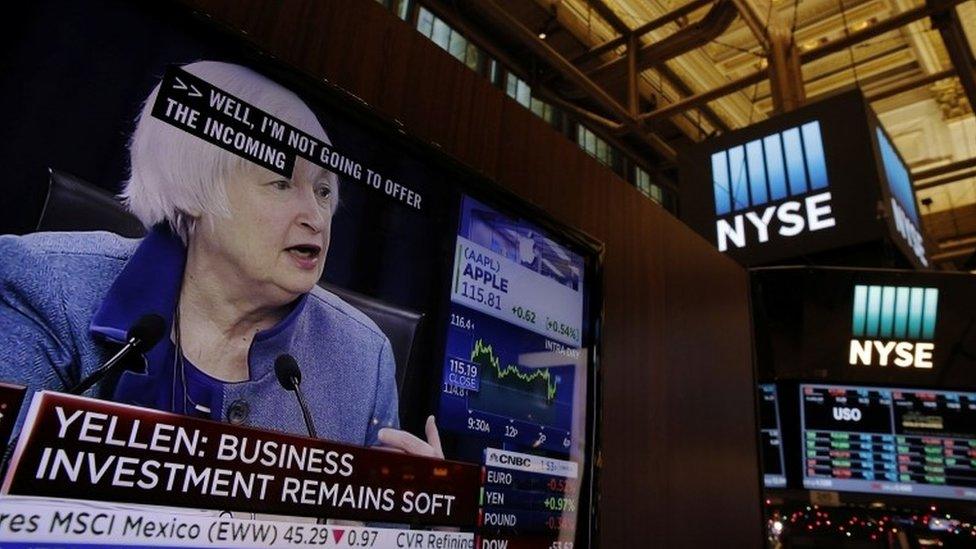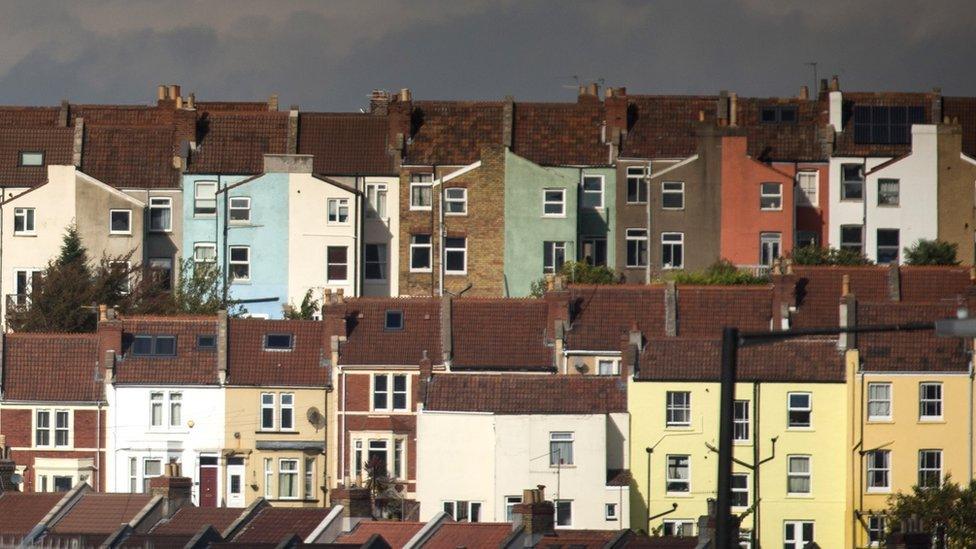US raises key interest rate by 0.25% on strengthening economy
- Published

The US Federal Reserve has raised its benchmark interest rate by 0.25%, only the second increase in a decade.
The central bank voted unanimously to raise the key rate to a range of 0.5% to 0.75%, citing a stronger economic growth and rising employment.
But the central bank said it expected the economy, external to need only "gradual" increases in the short term.
Fed chairwoman Janet Yellen said the economic outlook was "highly uncertain" and the rise was only a "modest shift".
However, the new Donald Trump administration could mean rates having to rise at a faster pace next year, she signalled at a news conference after the announcement.
The president-elect has promised policies to boost growth through tax cuts, spending and deregulation.
'Cloud of uncertainty'
Ms Yellen said it was wrong to speculate on Mr Trump's economic strategy without more details.
But she added that some members of the Federal Open Markets Committee, the body which sets rates, have factored in to their forecasts an increase in spending.
As a consequence, the FOMC said it now expects three rate rises next year rather than the two that were predicted in September.
What impact will the Fed's rate rise have on the US and the rest of the world?
Ms Yellen told the news conference: "We are operating under a cloud of uncertainty... All the FOMC participants recognise that there is considerable uncertainty about how economic policy may change and what effect they may have on the economy."
Also, she declined to be drawn on Mr Trump's public comments about the Fed, and his use of tweets to announce policy and criticise companies.
"I'm a strong believer in the independence of the Fed," she told journalists. "I am not going to offer the incoming president advice."
The interest rate move had been widely expected, and followed the last increase a year ago.
Reflection of confidence
Rates have been near zero since the global financial crisis. But the US economy is recovering, underlined by recent data on consumer confidence, jobs, house prices and growth in manufacturing and services.
Ms Yellen said the rate rise "should certainly be understood as a reflection of the confidence we have in the progress that the economy has made and our judgment that that progress will continue".

Although inflation is still below the Fed's 2% target, it expects the rise in prices to pick up gradually over the medium term.
"The Committee expects that economic conditions will evolve in a manner that will warrant only gradual increases in the federal funds rate," the Fed statement said.
It added: "The federal funds rate is likely to remain, for some time, below levels that are expected to prevail in the longer run."
The Fed also published its economic forecasts for the next three years, external.
These suggest that the Federal Funds rate may rise to 1.4% next year; 2.1% in 2018; and 2.9% in 2019.
GDP growth will rise to 2.1% next year and stay there, more or less, during those years.
The unemployment rate will fall to 4.5% over the 2017-2019 period, the Fed forecast.
And inflation will rise to 1.9% next year and hover at that level for the next two years.
The dollar rose 0.5% against the euro to €0.9455, and was 0.9% higher against the yen at 116.17 yen.
Wall Street's main stock markets were largely unmoved immediately after the Fed's announcement, but drifted lower later. The Dows Jones index closed down 0.6%, and the S&P 500 was 0.8% lower.

Analysis: Michelle Fleury, New York business correspondent
There's a name missing from the Federal Reserve's statement - Donald Trump. The president-elect's surprise triumph at the polls last month has turned out to be a short term boost to the US economy.
Stock markets have surged higher, and consumer confidence indicators show US consumers feeling even more upbeat. The challenge for the Fed is working out what his election may mean to the economy in the next year or so.
The most obvious likely impact could come from tax cuts which both he and the Republican Congress seem to favour. Less certain is an infrastructure spending spree that Mr Trump would evidently like, but which many in Congress are less keen on.
If Janet Yellen and her colleagues considered these political issues, they weren't mentioned in the official statement on monetary policy. Nevertheless Mr Trump has a way of breaking in to most conversations these days.
And the first question asked of Ms Yellen at her press conference duly concerned America's next president - and she admitted that Mr Trump's impact on US tax and spending policies might have influenced some of her colleagues forecasts for next year.

- Published15 December 2016

- Published15 December 2016